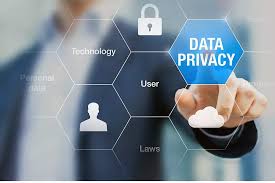The documentary “In the Age of AI" by FRONTLINE, dives into the direct impact AI has/will continue to have on our societies. This documentary highlights topics such as employment, privacy, national security, and the levels of power demonstrated globally by different nations (either friendly or unfriendly). Additionally, the documentary details how AI is reshaping industries, developing superlative governmental surveillance capabilities, and places a focus on the competition between the United States and China. Furthermore, this documentary not only brings to attention the growing opportunities and challenges posed by AI, but describes the likelihood of producing the most paramount of results and the most egregious ones.
One key takeaway from the documentary is that automation is increasingly taking over tasks previously carried out by humans. The impact AI has had on the economy across various sectors has not only led to significant changes in the marketplace, but a decline in human influence. AI poses challenges related to the urgent need for the workforce to adapt to new technological demands as well as the number of available jobs. Another important point in the documentary is the expansion and advancements into surveillance. Governments have begun tasking themselves with leveraging AI to improve monitoring capabilities, which directly affects the privacy of Americans with the potential misuse of surveillance systems to monitor its citizens. On the bright side of privacy implications, personal data collection enables more advanced threat protection while enhancing personalized and efficient services. With regard to the negative impacts of AI, the inclusion of data exploitation poses a severe risk into the protection of personal information. This is extremely dangerous because that information can be used and abused without the consent from its owners for both commercial or political purposes. The extensive collection of data also raises concerns about the balance between innovation and individual rights. AI also has a major impact on national security. AI enhances the ability to quickly detect and respond to security threats, providing the nations that use it with a massive strategic advantage. However, these AI systems themselves can become targets for cyberattacks which threaten national security. AI also has significant positive/negative implications for online security and identity theft. AI has the ability to protect citizens and organizations through the benefits of AI’s ability to detect fraudulent activities more efficiently. Advanced AI algorithms can enhance the accuracy of identity verification processes, providing another layer of security for individuals or organizations. However, cybercriminals can leverage AI and turn it into a personal advantage/weapon. In doing this, they can carry out more sophisticated and harder-to-detect attacks. Furthermore, invasion of privacy with the use of AI highlights the need for careful regulation and ethical considerations. One interesting topic the documentary covered is the fierce competition between the United States and China in the race to develop artificial intelligence. Ethical considerations standout as a common theme when discussing biases in the AI algorithm and moral obligations to protect a nation's citizens. Lastly, there is uncertainty with regards to how the collection and analysis of personal data drives AI systems. This reliance on data poses the question of, “how to delegate the balance between fostering innovation whilst protecting privacy rights.”
Several aspects of the documentary are not only surprising, but frightening. Rapid advancement and adoption of AI technologies across industries showcase the transformative pace of innovation on large scale. The surveillance enabled by AI in certain areas where such capabilities are more extensive than commonly understood, is another surprising factor when discussing the impact of AI. A negative impact of AI is the potential to harm economic disparities, favoring those with access to advanced technology. The rise of job displacement causes millions of workers to search for new roles in an ever changing society, which can affect anyone. The possible lack of privacy is another consequence of AI, with enhanced surveillance capabilities threatening individual security and privacy. Also, the development of AI-driven weapons can cause a rise of unanticipated warfare as these weapons raise ethical concerns regarding the usage of these weapons in war.
In conclusion, “In the Age of AI” provides an analysis of the impacts of AI on society. While AI technology offers numerous benefits, it also presents significant challenges. AI has a positive impact on society such as enhanced efficiency, improved security, and new opportunities for innovation. However, issues like job displacement, erosion of privacy, ethical dilemmas, and increased national security, places the protection of individuals and organizations at further risk. AI will only continue to expand and become more advanced, so maintaining a balance between advanced technology and providing security is important regarding the use of AI.







